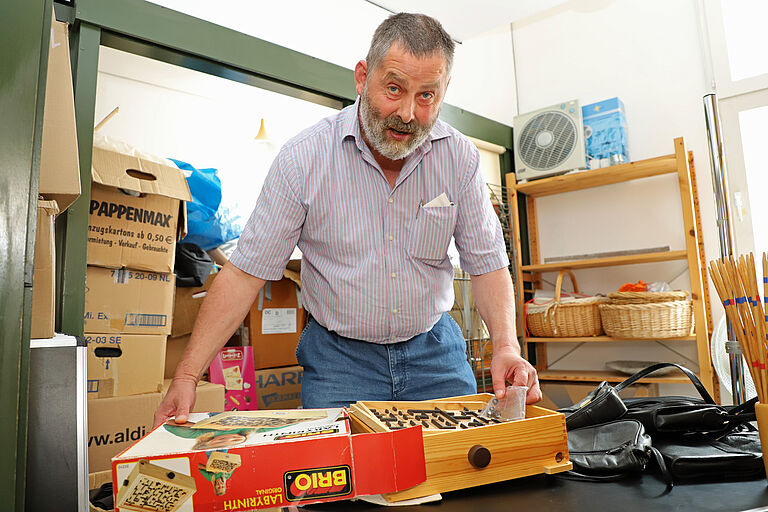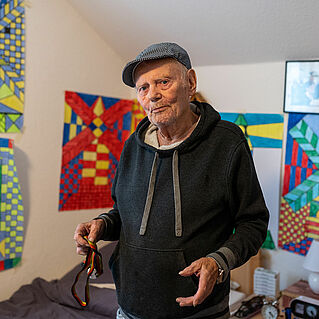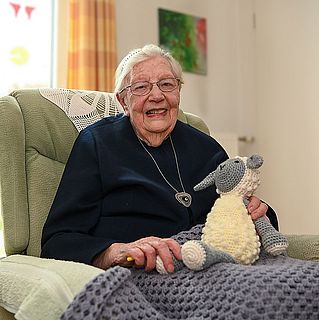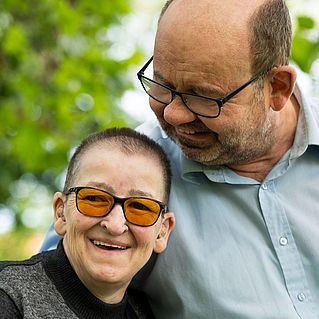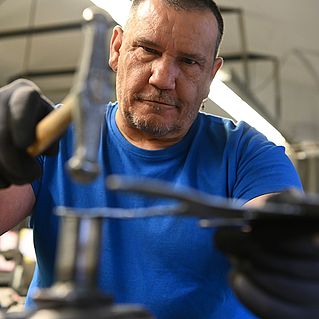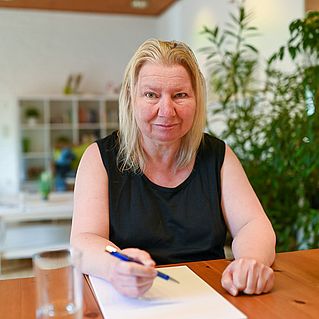When Klaus Jürgen Mann began his training as a federal police officer with the Border Guard over 40 years ago, he didn't really know what a mental illness was. He was deployed abroad, travelled a lot and was, in his own words, "in the middle of life". He doesn't really know when it started: "It was a gradual process, but at the age of 25 I experienced the first episode of my mental impairment, which still persists today." Highs and lows followed. Klaus Jürgen Mann is now 59 years old and has been working at the Bethel day centre for people with mental disabilities for ten years. As things stand today, he describes his current life situation with the thoroughly positive words "Jürgen Sorgenfrei"!
Klaus Jürgen Mann had a mental breakdown during a work assignment in Ireland and returned to Germany. After a four-week stay in hospital in Lüneburg and a further five months of "being ill", he returned to work at the border patrol in Lüneburg: "But I somehow just functioned and didn't even think about the causes or triggers of my illness." A few months later, when it came to becoming a civil servant for life, he failed the exam due to his mental illness. "Of course, my world collapsed. I became long-term ill and was unable to work for about five years," says Klaus Jürgen Mann, talking about a very difficult time in his life.
